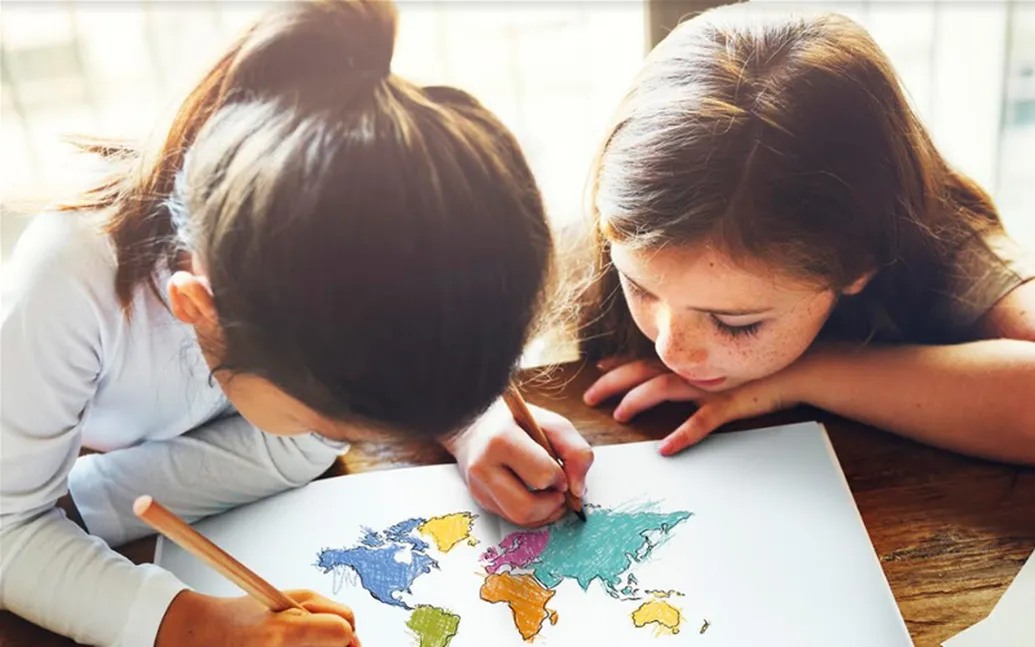Oguz Kaan Kısa · April 19, 2021

The "floating school" project, which brings together the local architecture and innovative technologies of the Makoko community in Nigeria, is trying to find a solution to the education problems in the region. This three-storey building, which will be used as a school, stands on 256 plastic barrels and is designed in the form of triangular prisms. Wood is used as a material and the energy needed by the buildings is provided by solar panels. Approximately 100 students are aimed to receive education in this school.
Children learn a lot at school; Mathematics, literature, biology… In addition to all these, the school should also teach life to children. The best example of this can be given from South Korea. Korean students clean their own schools. Thus, cleaning, pollution; that is, they learn an important detail about life.
The oldest university in the world is Nalanda University in India. Founded in 500 AD, this university is older than the Karueein University in Fez, Morocco, and the Al-Azhar University in Egypt. The foundation date of Karueein University is 859 A.D., and the foundation date of Al-Azhar is 970 A.D.
In Japan, students take off their shoes when entering schools. There are several reasons why students take off their shoes in schools. The first reason is, of course, cleanliness. Japanese schools do not have caretakers as in Korea, and students do the cleaning. Students who clean their own school are also looking for a way not to pollute. Such situations also improve the concept of equality between students.
Today's children are born into technology. We have a strange delight mixed with amazement that little children grow up with technology. We think a smart generation is growing up. But technology giants such as EBay, Google, Apple, Yahoo and Hewlett-Packard in Silicon Valley, which is called the homeland of technology, are trying to free their children from technology. For this, they prefer non-technology schools. Computer screens or smart boards are replaced by old blackboards, rulers, scissors, chalk, shovels, sewing needles, brushes and mud.
In the Norwegian education system, which is based on the principles of “inclusion for all students”, students are not taught competition. Children who do not get a report card and are not subjected to an exam until they reach the 8th grade are not explained to the class or parents about these children. Every child is the best and that's why all children are awarded first place medals, even at sports competitions.
Finnish authorities are considering removing classical curricula from schools altogether. There will be no more physics, mathematics, literature, history, geography or any other similar course! Marjo Kyllönen explains the change they will make as follows: “We teach in schools with an old-fashioned understanding that was designed in the early 1900s and was useful at the time. However, today's needs are not the same. Therefore, we need a suitable education model for the 21st century. " Instead of classical lectures, events and phenomena will be dealt with in an interdisciplinary manner. For example, World War II will be studied in terms of history, geography and mathematics.
Universities in the USA have student clubs. These clubs, of course, operate within the legal framework with the permission of the universities. But Yale University's student club "Skull and Bones" (Skull and Bones) is the only club that, although legal, its activities have been kept highly secret since its founding in 1832. Its members do not reveal a word.
Children who are just starting school in Germany are given cones known as “Schultüte”. The student puts his books, stationery and snacks inside. This tradition is also seen in countries bordering Germany, such as the Czech Republic and Poland.

 Back
BackLet us find your dream university.
